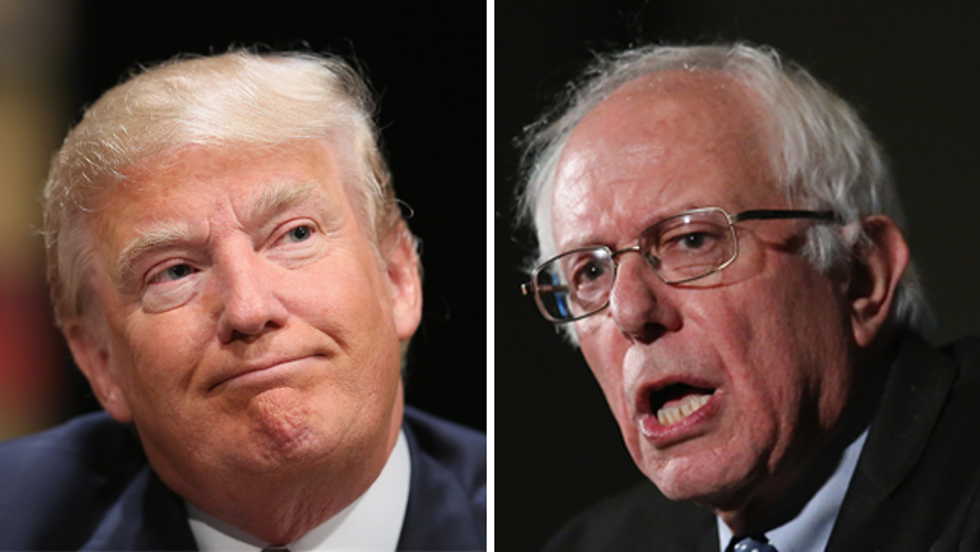Donald Trump leads all Republicans in national polling. Just a few months ago, Clinton was thought of as the inevitable Democratic candidate; now she leads the firebrand Senator Bernie Sanders by a mere eight points according to a CBS News/New York Times poll taken on Jan. 7.
Once thought of as an impossibility, a Sanders/Trump general election is now a very real scenario. Sanders and Trump represent the extremes of both the Republican and Democratic parties; Sanders is so progressive that he considers himself a socialist, while Trump touts his conservatism with every politically incorrect comment and insensitive joke.
Gravitation towards the extreme is normally associated with primary elections. Candidates are eager to appeal to the base because they only need to consider Republican or Democratic voters. In general, candidates often change their stances and move to the center in order to carry independents and voters from the opposite party and more moderate Americans.
With Trump and Sanders, this outcome seems highly unlikely, as Trump will not change. Similarly, Sanders ran as an ideological candidate and has cooked up a firestorm of Democrats dissatisfied with their party’s establishment.
In the event a Trump-Sanders contest emerges at the end of the primary season, it seems Sanders will have an edge. Based on polls taken by the NBC News/Wall Street Journal and Quinnipiac, Sanders holds 15- and 13-point leads over Trump in a hypothetical general election. According to an average taken by RealClearPolitics, Sanders has about a five-point lead over Trump.
A few weeks ago, during a campaign rally in Sanders’ home state of Vermont, Trump said he would love to face Bernie Sanders in the general election, calling it “a dream come true”—a comment indicating his belief that he would win easily in such a contest. Trump went so far as to call Sanders a “little puppy,” referring to the moment when Sanders yielded his stage to Black Lives Matter protesters at a rally.
The rest of the GOP field has also suggested that Sanders would lose to any Republican candidate in a national contest.
Sanders fired back against his GOP detractors with a tweet depicting polls in which he held a lead over several Republicans such as Trump, Marco Rubio, Ted Cruz and Ben Carson.
Obviously, it is too early to tell whether these polls have any true merit, especially because the first primary voting hasn’t even happened yet. The Iowa caucuses are about three weeks away.
The candidates, however, are running short of chances to prove themselves before Iowa. The final GOP debate will take place in Iowa on Jan. 28 on the Fox News Channel. The final Democratic debate took place on Sunday night.
The race in Iowa is very, very tight right now. The latest poll from the Des Moines Register/Bloomberg gives Cruz a three-point advantage over Trump in Iowa. RealClearPolitics shows Trump with a one-point lead over Cruz in the caucus.
For the Democratic side, the most recent poll taken by the Des Moines Register/Bloomberg shows Clinton winning by two points, indicating an improvement in her Iowa position from just a few weeks ago.
It will be great to see some results in Iowa after nearly a year of speculation. It’s finally time for voters to put their money where there mouth is and place votes. This year will be a wild ride, and I can’t wait to see what happens in Iowa on Febuary 1.





















